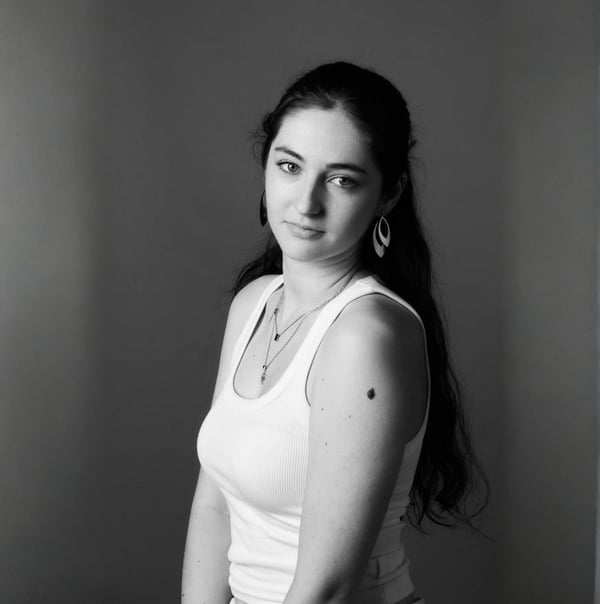The Rise of AI Beauty: Personalized Skincare in 2025
Table of Contents
- The Evolution of AI in Beauty
- How AI Beauty Works: The Technology Behind the Glow
- Benefits of AI for Consumers
- How AI Beauty Benefits Brands
- Popular AI Beauty Tools and Applications
- Real-Life Examples of AI Beauty in Action
- The Future of AI Beauty: Trends to Watch
- Conclusion: The Beauty Revolution Is Here
- FAQ: AI Beauty
Artificial Intelligence has made its way into nearly every industry, and beauty is no exception. In recent years, AI beauty innovations have transformed how we shop for skincare, choose products, and even assess our skin’s health. The combination of machine learning, computer vision and data analysis now allows brands to deliver hyper-personalized skincare experiences that once required professional dermatology visits.
From AI skin analyzers that scan your face in seconds to virtual beauty advisors that recommend targeted treatments, the AI skincare landscape is reshaping how we approach personal care. In this article, we will explore the technology behind tech beauty, its benefits for consumers and brands, the most exciting tools available, and where the industry is headed in 2025.
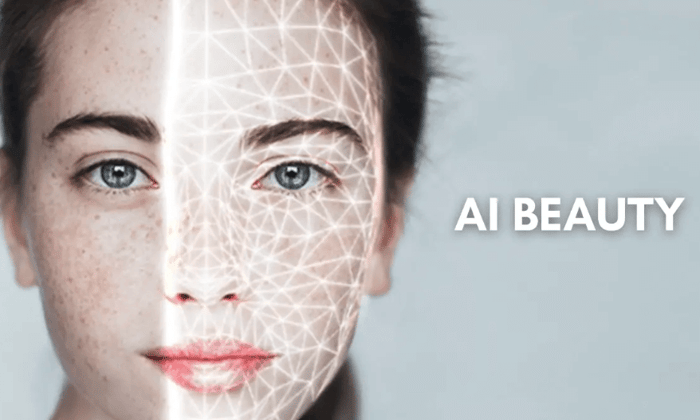
The Evolution of AI in Beauty
The journey of AI in beauty started with simple algorithms that could detect skin tone for foundation matching. Today, it has evolved into sophisticated systems capable of identifying subtle skin concerns like dehydration, hyperpigmentation, and fine lines with incredible accuracy. This shift has been fueled by the growing demand for personalization in skincare.
As e-commerce beauty sales surged, brands realized that AI could bridge the gap between in-store consultations and online shopping. Instead of guessing what works, customers can now receive scientifically informed suggestions based on their unique skin data. AI beauty platforms not only enhance the consumer experience but also help brands reduce returns and improve customer satisfaction.
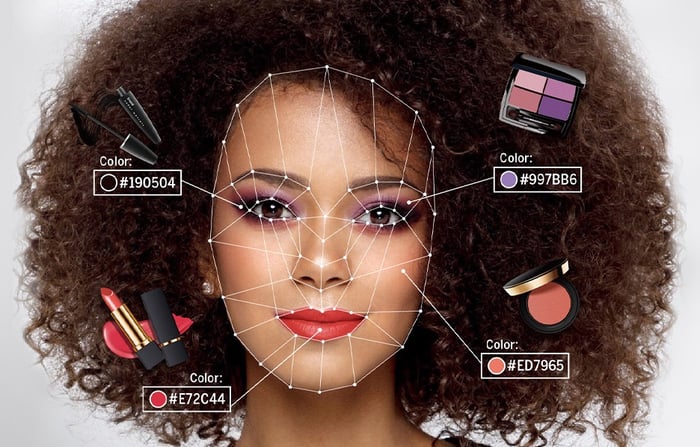
How AI Beauty Works: The Technology Behind the Glow
The magic of AI beauty lies in its deep learning algorithms and computer vision systems. These tools process high-resolution facial scans, analyzing features such as pore size, wrinkle depth and pigmentation distribution. Data is compared against thousands of reference images and dermatological insights to create accurate reports.
Additionally, AI beauty solutions integrate predictive analytics to forecast how your skin might respond to different products or environmental conditions. This allows for truly proactive skincare, you’re not just treating existing issues, but preventing future ones.
Benefits of AI for Consumers
For skincare enthusiasts, AI beauty offers several game-changing advantages:
Personalized Routines – No more one-size-fits-all skincare. AI builds a regimen tailored to your skin type, concerns, and goals.
Instant Skin Analysis – Tools can evaluate your skin condition in seconds without the need for appointments.
Smarter Product Recommendations – AI cross-references your skin data with ingredient databases to suggest products that work for you.
Progress Tracking – By regularly scanning your skin, AI tools can monitor improvement over time and adjust recommendations accordingly.
The result is a more informed and confident approach to skincare, backed by data rather than trial-and-error.
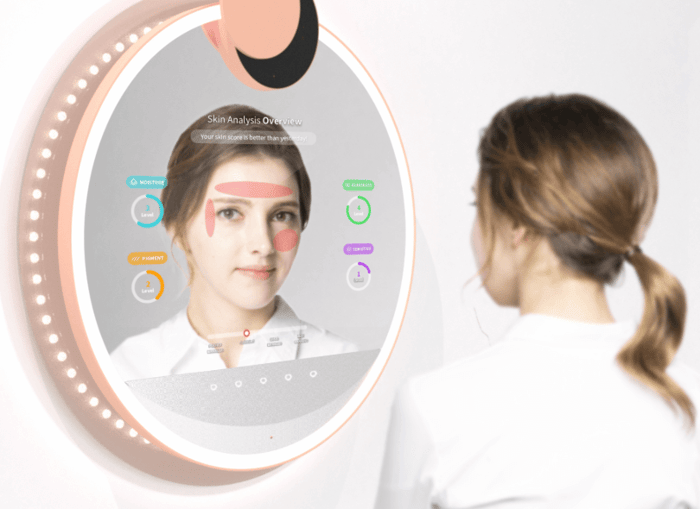
How AI Beauty Benefits Brands
For beauty brands, AI is more than just a trend, it is a growth strategy. By implementing AI beauty tools into their platforms, companies can:
Increase conversion rates by offering personalized recommendations.
Reduce product returns caused by poor product fit.
Collect valuable consumer insights to guide future product development.
Improve customer loyalty through tailored experiences.
E-commerce giants and niche skincare brands alike are leveraging AI to stand out in a competitive market. In fact, analysts predict that the AI beauty sector will grow exponentially by 2030, fueled by demand for smarter shopping experiences.
Popular AI Beauty Tools and Applications
From mobile apps to in-store kiosks, AI skincare and beauty is accessible to almost anyone. Some of the most common applications include:
Virtual Skin Analyzers – These use smartphone cameras to scan and evaluate your skin in real time.
AI-Powered Virtual Try-On – Perfect for makeup lovers, this lets you see how products will look before purchase.
Ingredient Matching Engines – AI cross-references your skin profile with a database of ingredients to recommend effective formulations.
Predictive Skincare – These platforms anticipate your future skin needs based on lifestyle, location, and current skin health.
The combination of these tools creates a fully immersive and highly personalized beauty experience.
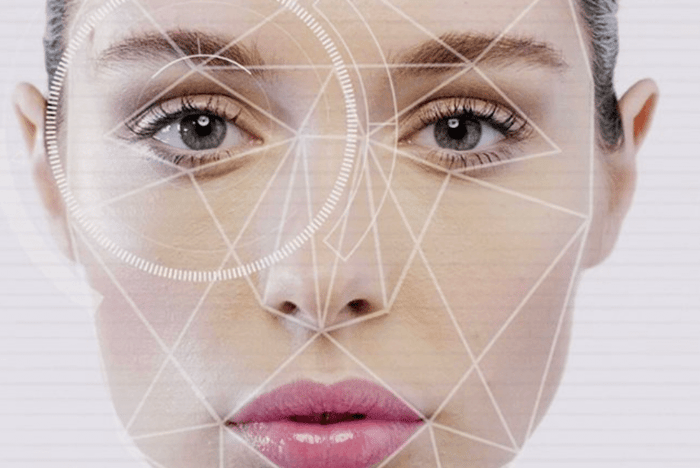
Real-Life Examples of AI Beauty in Action
AI beauty technology is no longer a futuristic concept, it is already deeply integrated into the daily routines of both beauty consumers and industry leaders. Across the globe, brands, skincare clinics, and even beauty retailers are harnessing artificial intelligence to deliver personalized experiences, more accurate diagnostics, and better results than ever before. These real-world examples illustrate how AI beauty is reshaping the way we approach skincare and self-care in 2025.
One standout example is L’Oréal’s AI-powered skin analysis tools, which use high-resolution facial scanning combined with deep learning algorithms to detect fine lines, uneven texture, pigmentation, and hydration levels. Consumers simply upload a selfie or use a live camera feed, and within seconds, the platform generates a tailored skincare report along with recommended products from the brand’s portfolio. This creates a direct, seamless link between diagnosis and purchase, making skincare shopping faster and more informed.
In the premium skincare market, Shiseido has invested heavily in AI beauty research, developing systems that can predict a person’s skin health trajectory over the next decade based on current conditions and lifestyle habits. This allows users to not only treat existing skin concerns but also take preventive action, creating a shift from reactive skincare to proactive skin longevity planning. For luxury clientele, this kind of insight adds an exclusive and futuristic dimension to their beauty routine.
Retailers are also embracing AI beauty in physical spaces. Sephora’s AI-powered virtual try-on kiosks allow customers to see how makeup products will look on their skin tone in real time, eliminating the guesswork and reducing the need for in-store testers. These experiences are powered by computer vision and machine learning models trained on thousands of skin tone variations, ensuring accuracy and inclusivity for all shoppers. By integrating AI directly into the in-store journey, Sephora enhances customer confidence and shortens the path to purchase.
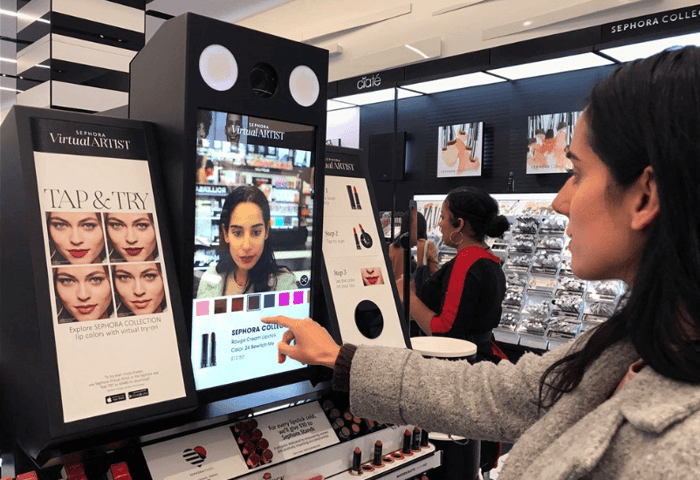
AI beauty is also transforming dermatology and medical aesthetics. Clinics now use AI diagnostic platforms that can detect skin diseases, acne severity, or early signs of conditions like melanoma with remarkable accuracy. These tools assist dermatologists by providing a second layer of evaluation, speeding up consultations, and enabling more precise treatment plans. This blend of technology and medical expertise ensures that patients receive both the human touch and the analytical power of AI.
Social media platforms have also become hotbeds for AI beauty innovation. AI filters on apps like Instagram and TikTok now offer realistic simulations of skincare results, showing what your skin might look like after consistent use of a certain product or treatment. While this raises debates about beauty standards, it also serves as a powerful visualization tool for marketing and education, helping consumers make more informed choices.
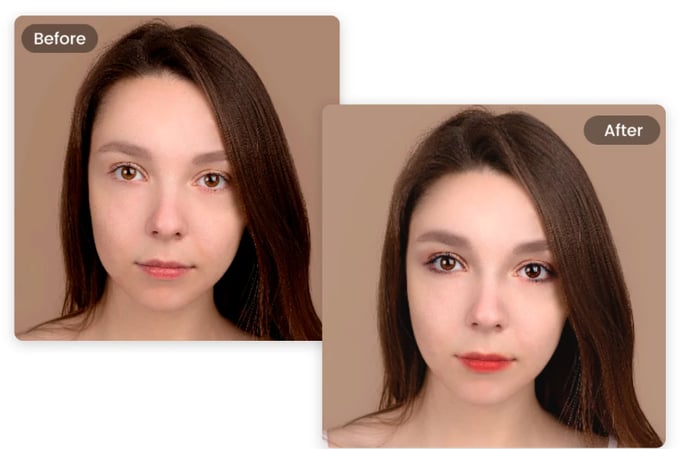
Finally, AI beauty’s role in sustainability is emerging as a crucial trend. Brands like Proven Skincare are using AI algorithms to cut down on waste by producing only what is necessary for each customer’s formula, reducing excess inventory and packaging. As environmental consciousness grows, this data-driven approach to beauty aligns with the values of eco-aware consumers while still delivering high-quality results.
These examples show that AI is not a passing trend, it is a transformative force that is deeply embedded in how we discover, choose and use beauty products today. From virtual diagnostics to personalized product creation, the technology is bridging the gap between scientific precision and everyday self-care. As adoption continues to grow, the line between tech and beauty will only become more seamless, making AI beauty an essential part of the industry’s future.
The Future of AI Beauty: Trends to Watch
In 2025 and beyond, AI applied in beauty is expected to become even more advanced. Innovations in multi-sensory AI may allow virtual consultations to include simulated touch and texture experiences. Augmented reality (AR) will merge with AI to create interactive skincare tutorials, while wearable tech will feed real-time data to AI platforms for hyper-accurate recommendations.
Sustainability will also be a driving force, with AI helping consumers and brands reduce waste by ensuring the right products are purchased the first time around.
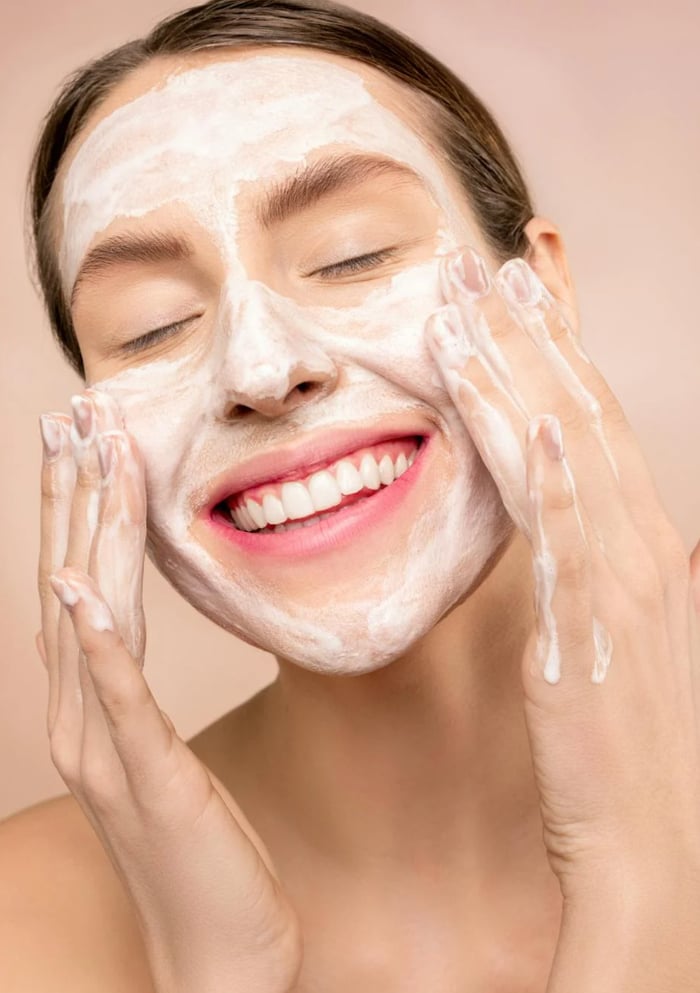
Conclusion: The Beauty Revolution Is Here
AI beauty is not just a passing fad, it’s a fundamental shift in how we approach skincare and cosmetics. For consumers, it means smarter, faster, and more personalized beauty routines. For brands, it means higher engagement, improved efficiency, and stronger customer relationships.
As technology advances, the gap between online and in-store beauty experiences will continue to shrink, making AI an essential part of the beauty industry’s future.
If your brand is ready to embrace the next wave of personalized beauty, now is the time to act. With this tool, the future of flawless skin is already here, and it’s just one scan away.
Try Modelia and discover the power of AI
FAQ: AI Beauty
What is AI beauty?
AI beauty refers to the use of artificial intelligence in the beauty industry. It powers tools like virtual makeup try-ons, skin analysis apps, personalized product recommendations and AI beauty content.
How is AI transforming the beauty industry?
AI makes beauty more personalized and accessible. It helps consumers find the right skincare routines, test makeup virtually, and discover products suited to their unique needs without visiting a store.
Can AI beauty tools really analyze skin conditions?
Yes, many AI-powered apps can scan a photo to detect skin concerns such as acne, wrinkles, or dryness. They then suggest products or treatments tailored to the user’s skin profile.
Why are brands investing in AI beauty technology?
Beauty brands use AI to improve customer experience, reduce returns, and boost engagement. It allows them to offer more precise recommendations, streamline e-commerce, and stay competitive in a digital-first market.
How would you rate this article:
Related Articles
- Product Photography for Ecommerce: Tips for High-Converting Images
- Christmas Party Dress Styles to Shine This Holiday Season
- AI Agent for Fashion: Smarter Business & Design Tools
- Best Virtual Fitting Room Apps: Top Picks for Online Shopping
- Botika.io Pricing, Plans and Feature Breakdown
- Essential Flat Lay Photography Tips for Perfect Shots
- How to Get Your First Sales on Shopify Fast
- Virtual Jewelry Try-On: How AR Technology is Changing the Way We Shop for Jewelry
- Best 10 Alternatives to X-Design for AI-Enhanced Fashion Content
- Best 7 Botika Alternatives You Should Check Out in 2025


